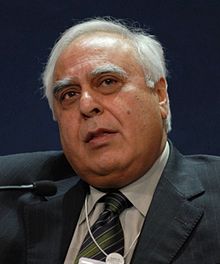  True to his reputation, the former telecom minister Kapil Sibal won the call drop case for the mobile Operators in the Supreme Court. Now, the mobile operators will have to pay zero compensation to the subscribers on call drops. Sibal’s zero loss theory on 2G scam became famous during UPA rule.
The Supreme Court, on Wednesday, set aside call drop compensation regulation. Telecom regulatory Authority of India (TRAI) had imposed a penalty for a call drop. Operators had to pay consumers Re 1 for every call dropped subject to a maximum of Rs 3 a day.
A bench of justice Kurian Joseph and R.F. Nariman called the regulation "ultra vires, arbitrary, unreasonable and non-transparent".
"A consumer may well suffer a call drop after 3 or 4 seconds in a voice call. Whereas the consumer is charged only 4 or 5 paise for such a dropped call, the service provider has to pay a sum of rupee one to the said consumer. This cannot be called notional at all," justice Nariman said.
Commenting on the order, Prasad said: "Trai regulation is under scrutiny. Therefore, Trai needs to take a call. As far as government obligation is concerned, we shall continue to persuade telecom operators to provide good service.”
Sibal, who is the counsel for the telecom operators, called Trai's call drop regulation "a populist measure". "If you want to please the people of India and want to become popular with them, do it in accordance with the law."
On February 29, the Delhi high court had upheld Trai's regulation. Subsequently, telecom service providers moved the Supreme Court.
To justify their stand, operators said they were drafting spectrum sharing and trading agreements to increase bandwidth to provide better voice and data services.
In a joint statement, industry associations COAI and AUSPI said: "We are committed to working with Trai to focus on the core issues that impede quality service such as availability of affordable spectrum and timely permissions for setting up our cell towers." |